What I Enjoy In Amateurism
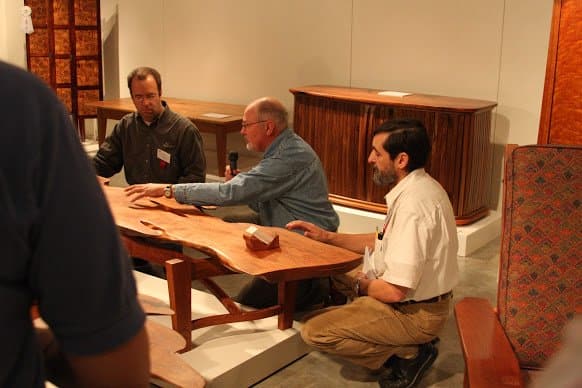
Say amateur to most and the reaction expresses the opposite to how I feel in using the word. Often it’s suggestive of a sort of diminished ability, but negative connotation or not, justified or not, there is no reason to take over a positive to turn it into a negative. By positive I mean amateur to me means it’s often passion-driven and the enthusiasm is always infectious. I know not yet, but one day I could be heralded as one of the longest serving amateurs in the world. My fascination with wood started around 10 years old. My passion for it never wained and I would say I get more passionate about it as each year arrives.
Say amateur woodworking or woodworker to Paul Sellers and his heart leaps in hopeful expectation. Let’s try not to think amateurish, just amateur, you know, the one that works wood no matter the weather, not matter the lack. The one who’s out there paddling the canoe after breaking the ice to get to midstream. Amateur woodworkers work wood whether they have hand tools or not and whether they have just the right wood or not. Dare I say they’ll work wood with their fingernails if need be. Somehow just the passion they have alone pulls all of the ingredients into their sphere.Whereas amateurish may well be the result of ineptness, amateur and amateurs seem always to push toward new limits. They know that somewhere just ahead of defeat lies their success. How many times in my own life have I reached the point where I have said to myself I don’t know how to do this or I don’t think I can do that and suddenly I did it. Often times I have done the impossible because I didn’t know I couldn’t.
One definition describes amateur as ‘a non-specialist layman’ whereas my experience often turns up workmanship of exemplary skill in the work of the amateur. Such amateurs I’ve known, especially during or throughout my life living in the USA, are in no way at some secondary level when it comes to creative ability. I recall judging at furniture making shows where amateur work sat right alongside the best professionals and there was no difference in ability levels through hundreds if pieces.
So! Say hobbyist to me and my heart may sag just a little. Technically there is nothing wrong with using the word, as is the case with amateur, it’s just that it speaks of pastime rather than mastery. Very far from the reality in many people’s lives and far short of what any person can achieve with a few hours practice each week. You see, in my mind, when you decide woodworking is for you, and it’s a made up mind, you actually arrive at your destination to be. that is you have already become a woodworker. Now of course I accept that you may not yet be as talented or apt just yet. That is of little if any consequence. Becoming a woodworker has nothing at all to do with skill level. Becoming a skilled woodworker is different. We work to that end, don’t we?
When you start working with wood you are a woodworker. Being, existing in, working wood has no standard of achievement. An amateur woodworker exceeds any other type in terms of owning the entitlement to call yourself a woodworker. I have no more right to the title than anyone else. Becoming an amateur is an all-inclusive experience and you become immersed in a society that defies exclusivity. You, the woodworker, need no qualification. I love that fact alone! Also, the only time I needed to prove my qualification as a crafting artisan was when I applied for my US immigration status. But my qualification was nothing to do with college graduation. They never asked me for that, it all revolved around my indentured apprenticeship that simply said I apprenticed.
There is no one, no body, no organisation and no dictionary definition to qualify you. Once You decide woodworking is to become part of your life, and you read about it, buy in some old or and new hand tools, follow some basic instruction, just a little instruction, not too much, not college woodworking or or some university course on woodworking or furniture making, just real woodworking, you, the woodworker, are a fully qualified woodworking enthusiast. What I have enjoyed in working with woodworkers like Hannah is watching them grow. Seeing her face challenging work, her willingness to learn, her willingness to experiment, her willingness to take chances and now, watching her working and her willingness to defy the status quo in designing her pieces. Well, you can;’t bottle it and you can’t buy it and you can’t sell it.
I have seen this with different people in times past, those I have trained, like Hannah, to become. Most of the ones I have worked with have been those who first pursued their university degrees, full of hope in a future that then needed bolstering by more of the reality academia seems at least to me less inclined or perhaps able to nurture. Some, not all, found disappointment in their personal search for development, growth, maturity and wholeness. Finding such people to mentor has been my goal for three decades. I can only take one apprentice periodically. Hannah has become a truly competent woodworker and her working becomes more exemplary week on week. Today my outreach is more broadly strategic. But it’s no less possible for people five and ten thousand miles away. I’ve seen what you have been doing and it’s amazing. My advice is to love your amateur status. Us the term with pride. You hold the future of woodworking in your hands. It can only be preserved and cultivated as a culture by those who are passionate about it and that will be about 90% amateur led and powered.
Go on, join us. Be an amateur!


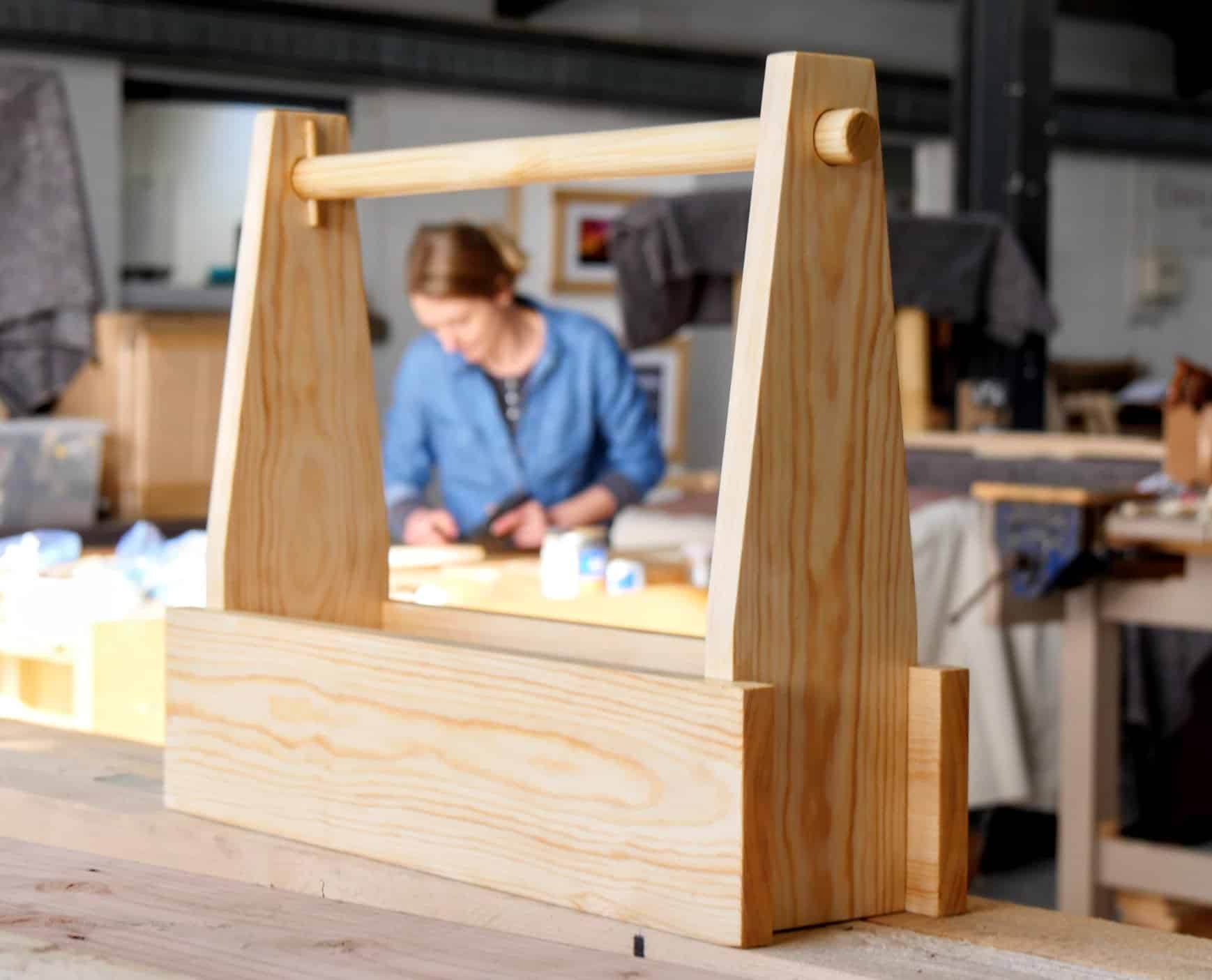
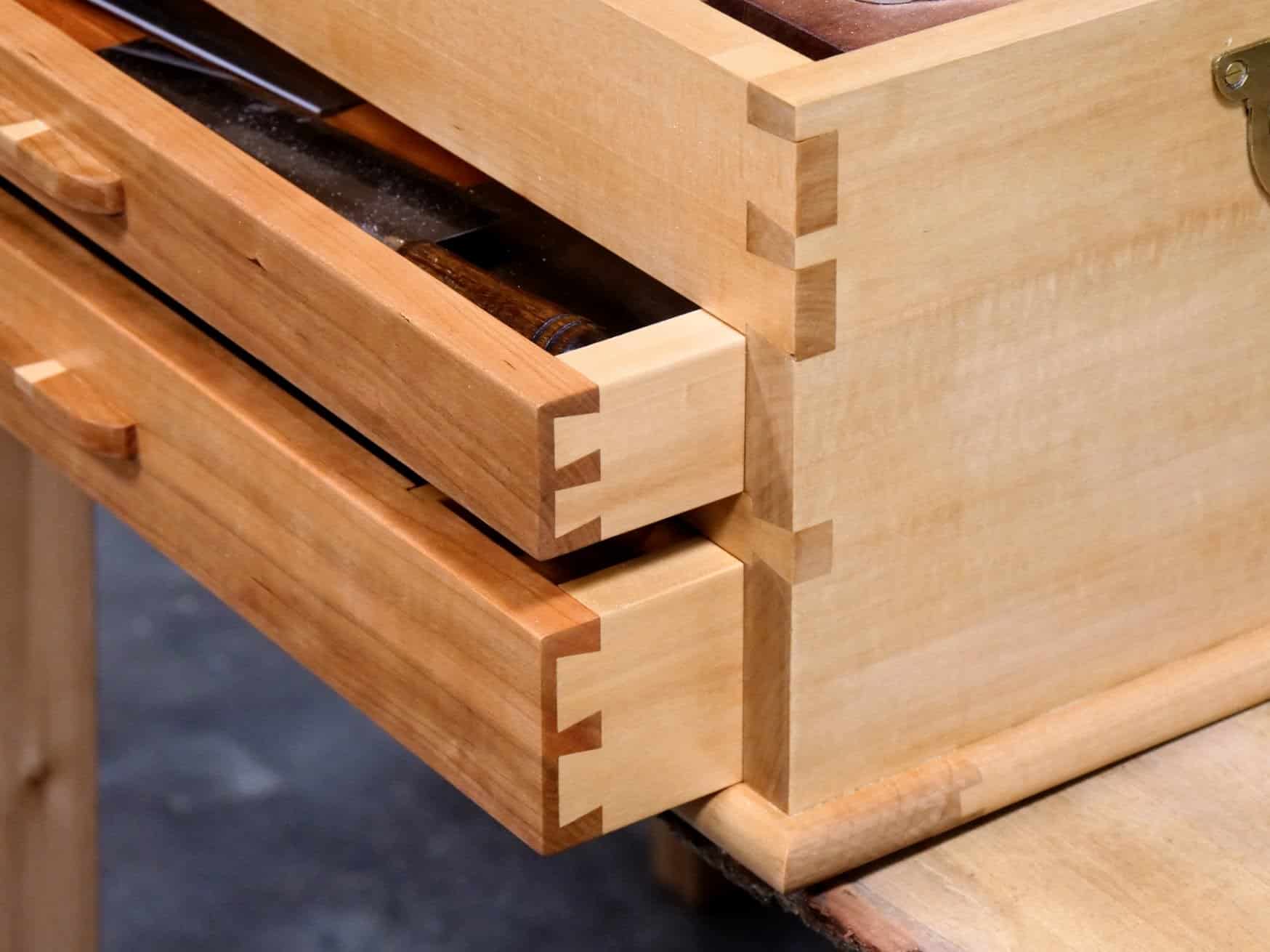


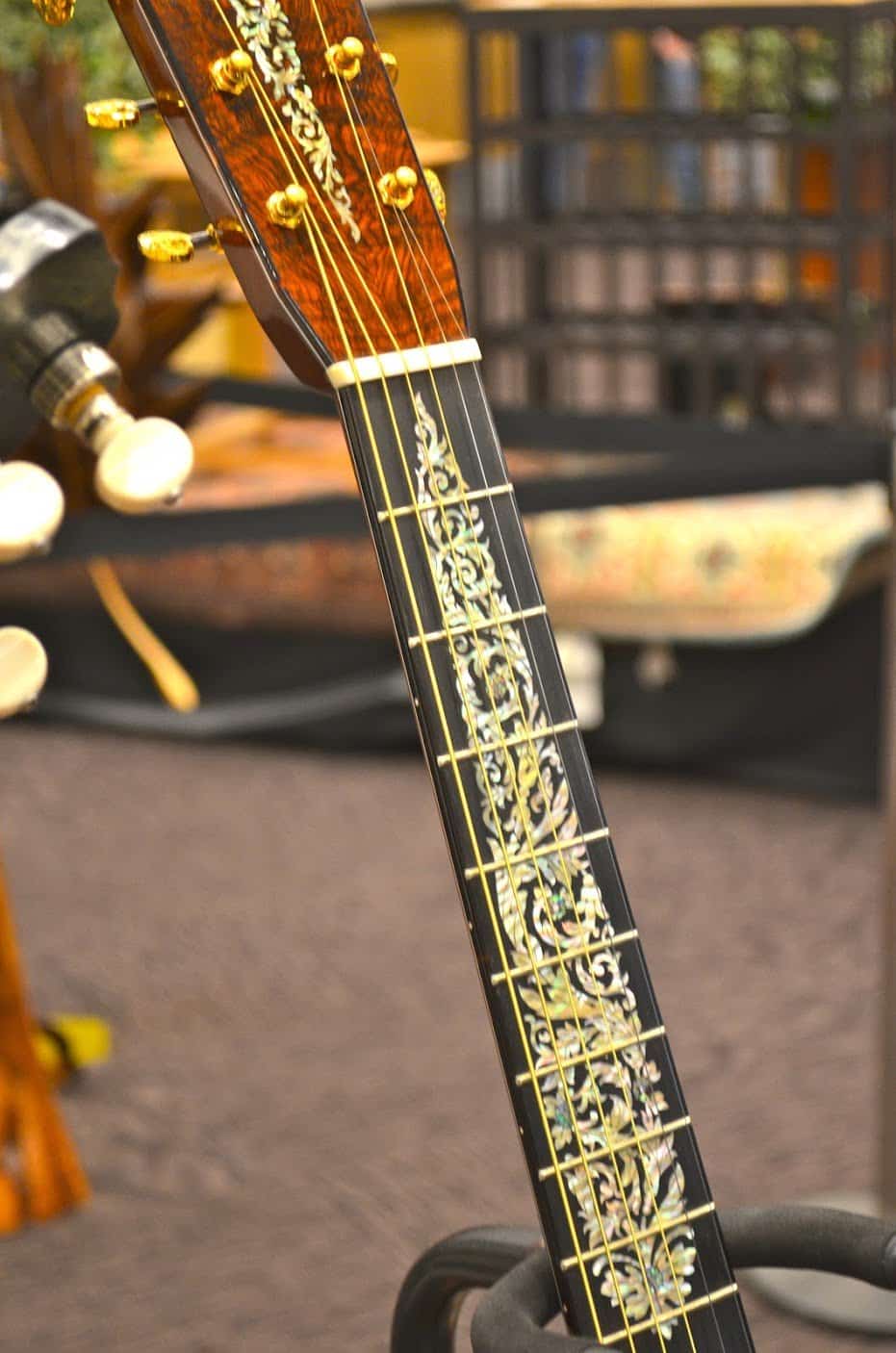
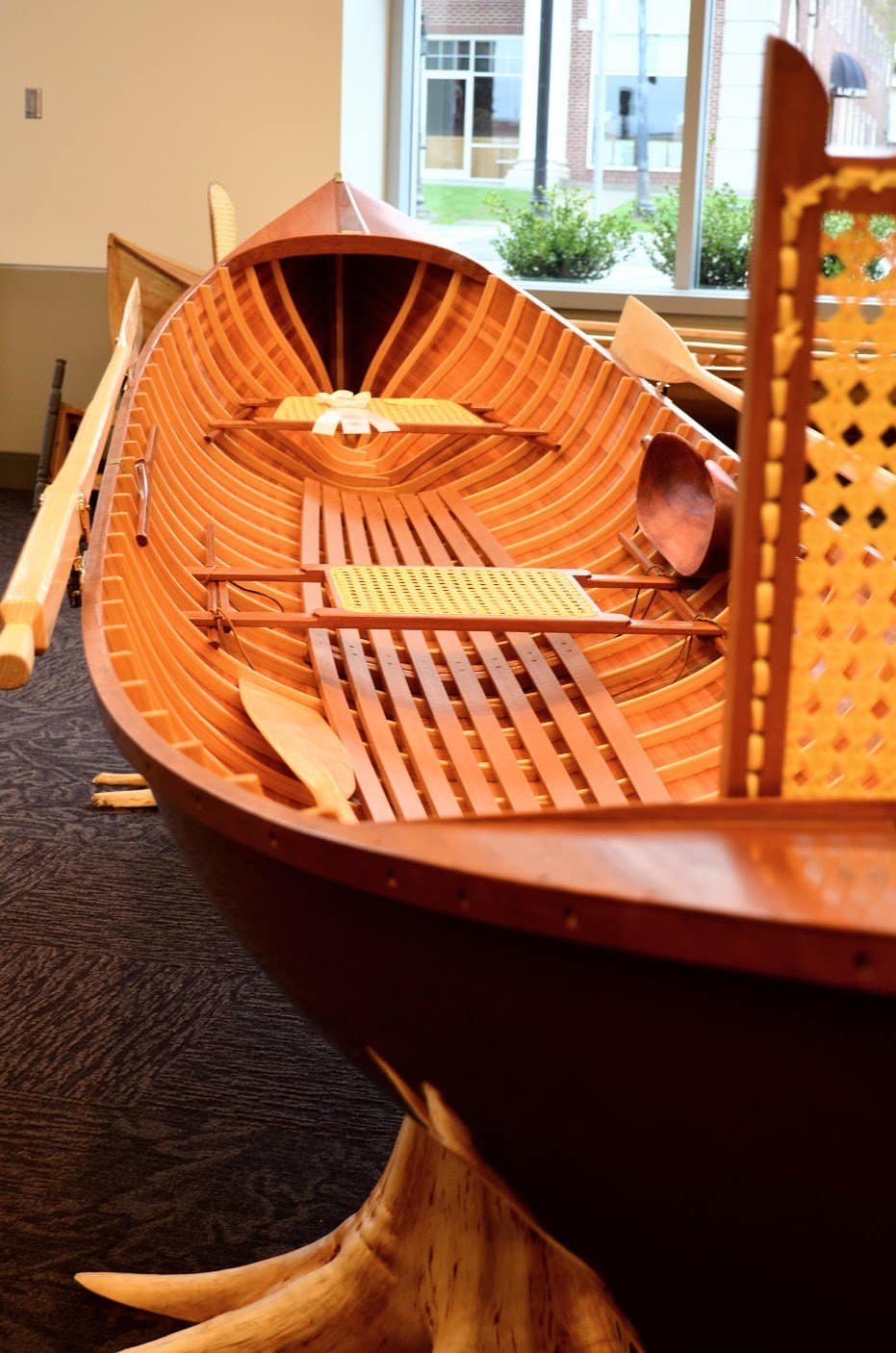
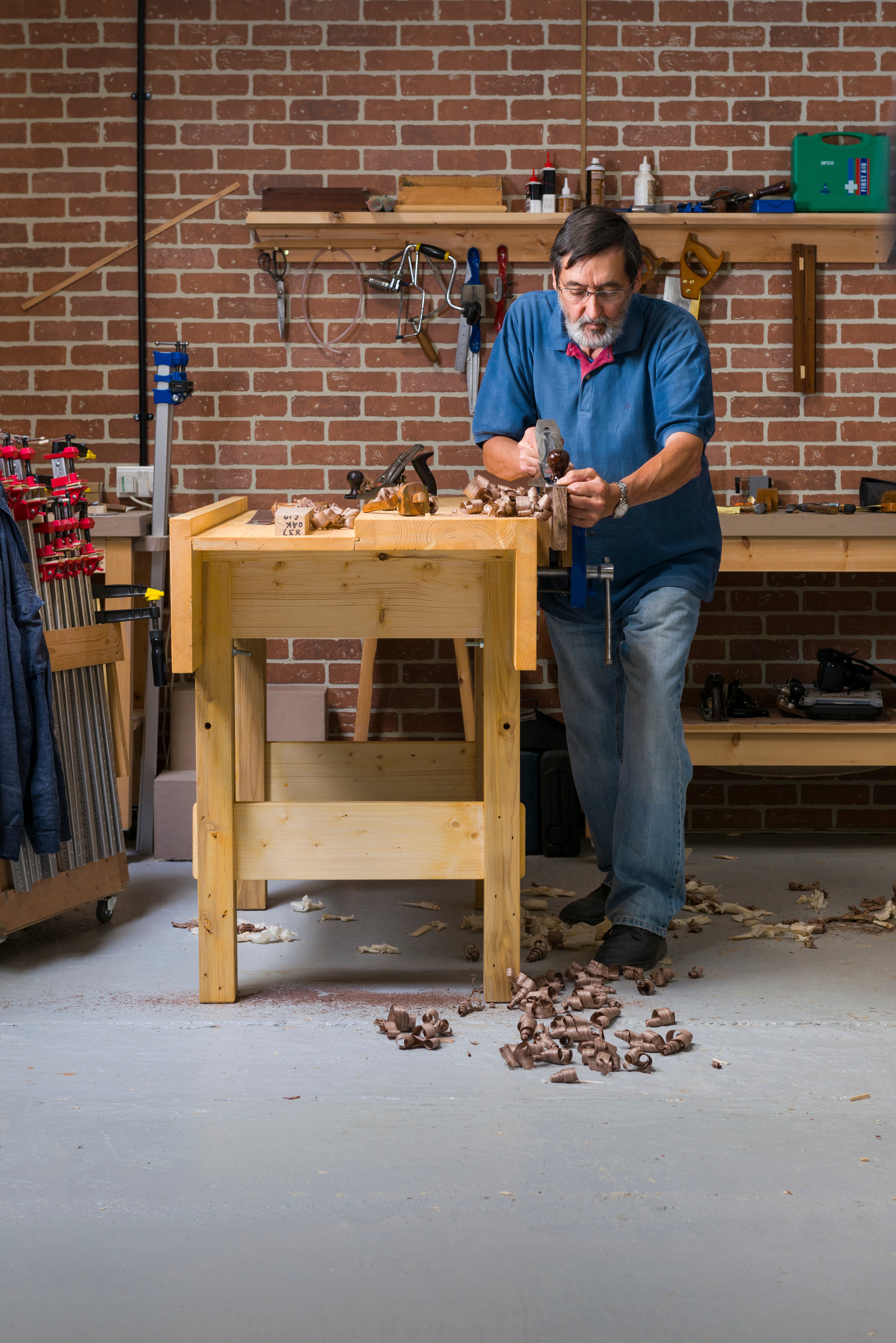
Am not offended myself by being called a hobbyist; it’s in fact how I describe myself to others: hobby-woodworker.
The definition of a ‘pro’, as I’ve always held it at least, is someone who gets paid for doing it. An amateur does it for just the enjoyment of it. And to me ‘enjoyment’ goes much beyond sheer hedonistic pleasure; solving challenges, learning, growth, etc. are just as much part of ‘enjoyment’ as is just plain ‘fun’.
But I’m most definitely not as fanatic as you describe: for me, the woodworking season has stopped till early march when temperatures start to rise again. It’s just not very enjoyable in a cold shed or outdoors. The paint of my latest (and, for this year, final) project takes very long to dry at our present 10 deg. C; I’ll be able to finish the paintjob completely (hopefully) before the real cold sets in. Will soon oil all the planes/chisels/saws/etc. and that’ll be the end of woodworking till next spring.
But I find the wintertime with its long evenings also a good time to catch up on some Paul Sellers woodworking videos….
(Cue ‘The Byrds’ with ‘To everything… turn turn turn… there is a season…. turn turn.’)
But the end of the woodworking season is also the start of electronics’ season. Right now finishing up a 13GHz pre-scaler that had been sitting on my desk since, err [blushes] the start of woodworking season last spring. And yes, also an amateur electronics hobbyist – never had formal education in the field, but my father started teaching me how to solder when I was 7 and a soldering iron has always been within arm’s reach ever since.
BTW, for years I’ve intended to build a classical valve-amplifier in a tasteful wooden cabinet. The electronics are easy enough for me (in fact, have a finished working prototype sitting on the very same desk) but actual execution of the idea always got stuck on having to *find* a nice cabinet for it, and never finding it. By now my skills are good enough that I know I can *build* a tasteful cabinet for it. So the plans for building have become much closer to being actually started. The perfect combination for me: electronics, metalworking (highly polished stainless steel top plate/mounting chassis) and building a wooden cabinet!
I think the term “True amateur” could be applied with the same respect as “True professional”. The latter implies that the work is of a standard that can and does command a price. The downside of this accolade is that it does not require the professional to enjoy the work. Speed and efficiency takes priority over indulging in the joys of the process. Dados (for example) that could be lovingly pared to perfection with a razor-sharp chisel may need to be whipped through with a power router. Errors, to the amateur, are the tools of discovery and discovery is the driving force. For the professional, productivity must be the driving force. Survival must depend on setting up to minimise or eliminate.
Although the amateur may earn some income from their pursuit, it is not their sole or main means of income… they don’t HAVE to do it The work is not a task but an indulgence. Unlike “professional”, the term “amateur” does not necessarily imply proficiency or high standards but neither does it imply a lack thereof. It implies that the work itself is the prime reward.
Talking of errors, I missed out the very word “errors”! The sentence “Survival must depend on seeting up to minimise or eliminate.” should end with the word “errors”.
“Seeting”??? I meant “setting”
Thank God I’m not a professional at this!
I think you’ve got a good point, the word job implies something you have to do, profession feels like it was a matter of cost/benefit analysis. If I can find people who like stuff I make enough to pay for it, awesome, I’m still gonna make it, it’ll just be easier when I sell some things, which will make it easier to be able to gift them when I’m able.
” Most of the ones I have worked with have been those who first pursued their university degrees, […] Some, not all, found disappointment in their personal search for development, growth, maturity and wholeness. Finding such people to mentor has been my goal for three decades. ”
Well, know that, even though it’s through your online work, you reached another one in me. I actually have a PhD in Physics, but after a decade of communicating with a piece of silicon it felt like something was missing. Oh I do love the capabilities of computers and what they allow me to create, but my hand craved for more.
At first I thought of going with powertools, with a bit of apprehension, until I decided to buy a single chisel just to try, but it didn’t cut well (if at all). Looking for resources on how to sharpen it, luck led me to your channel, and there I found my missing puzzle piece. Since then you’ve taught me to plane, saw and so much more, and I truly became an amateur woodworker.
Beyond that, it appears every man in one particular branch of my family has been a woodworker since at least the french revolution. Alas, this ended with my great grandfather when he gave up after the advent of industrial furniture.
My grandfather did try to relearn woodworking by himself at the end of his life, but he passed on too quickly to teach me anything.
Thanks to you, I feel like I could finally repair that severed link with my ancestors, and for this you have my deepest thanks.
Now my great-grandfather’s wooden jointer plane (about a 100 years old) sits among my tools, and has started making shavings once again.
That aside, I purchased your “Essential Woodworking Hand Tools” book just two days ago, and I have to say it is an exceptional ouvrage. No matter which page I randomly open it at, there is always something interesting and insightful to read.
You know, a few years ago a young student in Finland decided to play with his computer and write an operating system. For fun. As a hobby. And, over the years, other people joined in on that fun and helped. As a hobby. And that original hobby (his own words) became something that runs most of the web servers on the internet, all of those Android devices you use and most of the fastest supercomputers in the world.
And many of the developers that work on the software still consider what they do as a hobby. What they work on is for them a work of passion and enjoyment. The reward is a job well-done, an itch scratched and the respect of his peers.
Paul is right; one man’s hobby is just as grand and satisfying as another man’s profession.
And for those who are unfamiliar with whom I am referencing, look up Linus Torvalds, creator of Linux.
I prefer the word master rather than “pro”. Professional as we know means someone received payment for a service. Well, I’ve paid many people for many things and can clearly remember thinking the job the person did was definitely unprofessional.
If I really wanted to I could make what I make on the cheap and definitely get paid for it. But then I would be contributing to the masses of furniture pieces I use to buy at places like IKEA only to have them fall apart months later or have to re-tighten screws and bolts. But hey, “It looks so nice” and in the U.S. that what counts. I would much rather craft something and learn why the way something is made will last 150 years.
Quick story – years ago I called a plumbing service to have my shower unclogged. The kid doing the job was sticking the snake (slang for the device plumbers use to unclog drains in America) UP THE FAUCET!? Luckily, I was walking past the bathroom when he was doing this and asked if the snake should go down the drain. His reply, “Oh yea!” Remember though, he “professionally” received payment.
Years ago I made a large coaster out of oak and because the width is close to 6 inches it badly cupped. I remember thinking, “Well I guess wood just warps that way.” Through Paul’s videos I learned I could not have been more wrong. I needed to make a coaster that wide with a breadboard end to keep the ends of the coaster flat. Also, to prevent possible cracking the breadboard end should have the added feature of dowels with elongated holes in the tenons of the breadboard to allow for expansion and contraction. Are the dowels necessary? Maybe not but knowing it could crack I would add them. Why not. It would guarantee master craftsmanship.
The word ‘amateur’ comes from a French origin – and I’m pretty sure from the way my French friends use it, that they see it as an indication of passion and enthusiasm rather than the ‘second rate’ connotations we sometimes attach to it in English.
The root word is amore meaning to love.
noun
noun: amateur; plural noun: amateurs
1.
a person who engages in a pursuit on an unpaid basis.
2.
The earliest sense of amateur (“one that has a marked fondness, liking, or taste”) is strongly connected to its roots: the word came into English from the French amateur, which in turn comes from the Latin word for “lover” (amator).
Sadly ‘amateur’ is often used as a perjorative term.
Dr Alan Chapman (the astronomy historian) does a wonderful presentation of the role ‘amateurs’ have played in contributing to the advance of science.
We enjoy working with wood, that is all the payment we need.
I have just started down the path and you capture the intent perfectly here! Thanks to your instruction my very first (albeit slightly wobbly) workbench exists and I am starting to look to other projects! Embracing amateur status wholeheartedly here 🙂
Yep, amateur comes from the French verb amare, meaning to love. When I looked the word amateur up in my youth, I immediately adopted a meaning that I have not seen in anty dictionary definition: an amateur is someone who does something for the love of it.
I dislike the negative connotations so often associated with the word. They may be convenient for categorizing people and their efforts, but in my mind, they betray the truest, deepest meaning of amateur.
In my life, I have been an amateur programmer, amateur runner, amateur woodworker, amateur gardener. I have earned my bread by being a professional language teacher and consultant, but since I loved and was highly dedicatged to that work for which I was paid, I would say the results I achieved on that front were qualitatively equal to what can be achieved by people who love what they do even when they aren’t getting a salary for it. The hugs I have gotten from former students and the tears I have seen in parents’ eyes suggest the commitment has been worth it.
What seems quite clear to me is Paul Sellers not only loves woodworking, he loves sharing that love and spreading it, along with knowledge and skill, among the rest of us who have been fortunate enough to have discovered him.
I in my turn get tears in my eyes not just from reading and listening to Mr. Sellers, but also from reading the many heartfelt comments left on this site. Goodness overflows!
The greatest golfer of his generation, Bobby Jones, was an amateur. Up until relatively recently, all Olympic athletes were amateurs, as were most tennis players. I don’t know when the term amateur acquired a negative connotation, but when I was growing up in the 1950s and 1960s, it had not yet done so.
I am an amateur woodworker. As such, I can say without bragging that my thirty years of experience and love of the craft enable me to produce pieces of beauty and quality that will last for many decades to come, and that every day I remain on this earth I will strive to learn more about woodworking and use that knowledge to make the next piece better than the one I just finished.
I’m proud to call myself an amateur woodworker.
Brilliant! I want a Paul Sellers quote T-shirt for Christmas:
“Often times I have done the impossible because I didn’t know I couldn’t.”
Remember (pedantically) “amateur” derives from Latin “amare (love)”
I am striving to BE an amateur. Still trying to saw straight.
Keep going. It just comes when you least expect it.
Wholeheartedly agree – also personally being an amateur photographer.
On the subject of photos; what is the light wood that’s used in the third image in the article (the box with the two drawers)? Maple?
It’s lime.
Thanks Paul.
I need to make a much larger cabinet of a similar design and have some sapele I want to use for the drawer fronts. I’d love to try some half blind dovetails with a contrasting wood, but so far the best “match” I’ve found to the sapele is poplar/tulip wood (the maple and pine I’ve tried has too much pronounced grain vs the sapele). I’m just worried that the poplar might be too soft for the main body of the cabinet (and often contains green streaks). Maybe lime might be a better choice?
This reminds me of a gardening programme where the job was to tidy up the back of the garden with a pond in the corner . The first effort was done by 2 Irish men who very quickly sorted out the mess and slung a few rocks in place .It seemed to be done in 20 minutes. Result was entirely natural and attractive. Following that the next group took it apart and used new bricks and cement with spirit levels . The presenter was full of praise. But to us it looked awful and unnatural . The Irish guys just has a talent and a good eye for the final effect .
Then there was a Piano restorer on tv with all kinds of damaging ideas like lubricating the mechanisms with 3 in 1 oil instead of (eg) graphite powder . He was a complete clown and must have ruined many pianos but following the tv show he was never short of work again .
Round about 30 years ago I applied as an apprentice to a furniture maker in my hometown.
He denied, because he already had pledge that one apprenticeship to another guy.
Today I’m very happy about his decision. My profession is now something completely different (technical editing) and I’m able to do woodworking the way I like to do, not the way professional furniture maker HAVE TO do it due to several constraints.
As a hobbyist woodworker I have the freedom of choice in wood, tools and when and how long.
Keeping that in mind is some kind of liberating.
The link to the French meaning of the word Amateur is brought to mind. An “amateur de vin” would be translated literally as a wine amateur. English speaking people would think of the work more like aficionado. A woodworking aficionado I think describes Paul’s description of an amateur woodworker equally well.
Thanks again Paul.
“My advice is to love your amateur status.” Hear, hear! I believe the most important things in life should remain amateur. I cringe at the idea of professional teachers (does their role usurp a parent’s responsibilities, or less controversial, does the professional label make people feel like they aren’t good enough to teach skills they’ve mastered if they are without credentials?) I’m much more tolerant of the idea of a professional when it comes to things that aren’t fundamental to life, for instance somebody who builds equipment for airplanes. For me, woodworking goes into essential category, because it is a creative endeavor that brings people into action, and just as important, brings things into Creation. Put in a more cerebral way, “amateur” is an abstraction, where as somebody that works wood is real, and I vote for real!